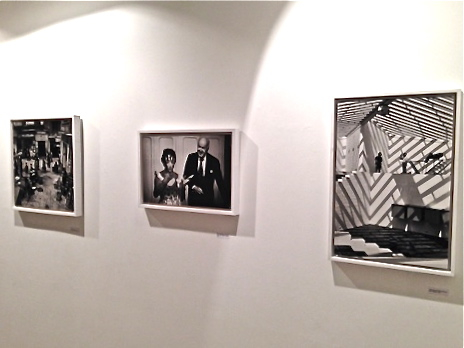Cullen Murphy’s new book Just Passing Through: A Seven Decade Roman Holiday, deals with the diaries of Milton Gendel, who is my father. They date from the 1930’s through to his death age 99 in 2018, and fill nine filing cabinet drawers. They are mostly typewritten, tightly spaced, and at times take up four sides of paper for an account of one day. Gendel would write about the details of his life, his most intimate thoughts and reactions to what he did and experienced, and to events in Rome and abroad. He was fascinated by people and their quirks, and his account of people’s behavior makes the diaries a guilty pleasure, as if listening in on a private, interior conversation.
A deeply sensitive man, with an observant eye and keen ear for language, Gendel’s personality required a detached restraint and sometimes cynical distance from all he experienced and saw. Here, his diary helped to mediate a tension between that which he felt and the cool he demanded of himself.

Moreover, as the son of Russian Jews who prized education and assimilation, Gendel had been fast-tracked to enter Columbia at age 16 and learning was at the center of his consciousness and daily practice. Thus, his diaries reflect a desire to understand events as they unfurled into History. Initially the diaries were interwoven with newspaper cuttings, at first from Il Messagero, and later La Repubblica, which told of events Gendel then described and commented on in his own words.
Although Gendel arrived in Rome in December 1949, his diaries start as a daily practice from 1966. Before then he was writing long detailed letters home to his mother in New York which allow us to trace his life, his meetings with friends and collaborators, and a sense of his new life in Rome which immediately after the war was empty and magnificent, but impoverished.
Being very good company, an attractive and well-informed man of charm, Gendel was soon adopted into Roman high society and made friends with important social and political figures such as the Contessa Mimi Pecci Blunt, Carlo Caracciolo–the founder of the Gruppo Espresso– Eugenio Scalfari and Marella and Gianni Agnelli.
Gendel had always shown a facility for learning languages; in training for his service with the US Combat Engineers he was sent to Yale to learn Chinese in three months, and he soon acquired a fluency in Italian that led to being asked to translate from English into Italian. Nonetheless, his spoken Italian remained distinctly accented with a New York twang.
Gendel’s life in Rome was also informed by the spectacular apartments he lived and worked in, always in the Centro Storico; dramatically proportioned and filled with fascinating and beautiful objects, some found, some bought, some inherited. These studios, as he called them, were the base from which he typed his diary, every day, for most of his life standing at a series of prized Olivetti typewriters.
The existence of the diaries became more obvious as the years went on and the opus became more and more magnum, but Gendel rarely referred to them.
In addition to the diaries and letters, Gendel also recorded his life by means of photographs which at first were simply for his and the family’s records and appreciation, but from 1977 they gained critical acclaim and were the subject of over thirty exhibitions. This new book, aside from being the first time these very private recollections have been published, contains over one hundred examples of Gendel’s photography, the majority of which were taken in Italy.
At the time of the Bicentennial in July 1976, Gendel returned to New York City for a short, rare, visit with his Roman son Sebastiano, where for the first time since his birth in 1918 Gendel saw his native city through a tourist’s eyes. Here is an unpublished excerpt from that trip:
“Museum of Modern Art closed so I took Sebastiano to Rockefeller Center and up to the 70th Floor observation terrace. Magical view of the city – the Empire State Building missing its upper quarter – lost in haze. Down below toy buildings – St Patrick’s a model of Gothic architecture. The park stretching into the gray…We got into a taxi and tore up the West Side Highway, shouting a conversation over the noise of the rattletrap cab. Cloisters better than ever, with some additions since I used to lecture there. Magnificent monumental European souvenir. Sebastiano shouting Fico! E proprio Fico!”
Gendel’s relationship to Rome was complex. He loved the city and as he grew older found it difficult to contemplate leaving, even for holidays. A man who hated being pigeon-holed, when friends and acquaintances would – quite naturally – say: “Milton, at this point you have lived in Rome for seventy years, you are a Roman.” My father’s answer would always be: “I am not, I am a New Yorker and a Democrat. I am just passing through.”








